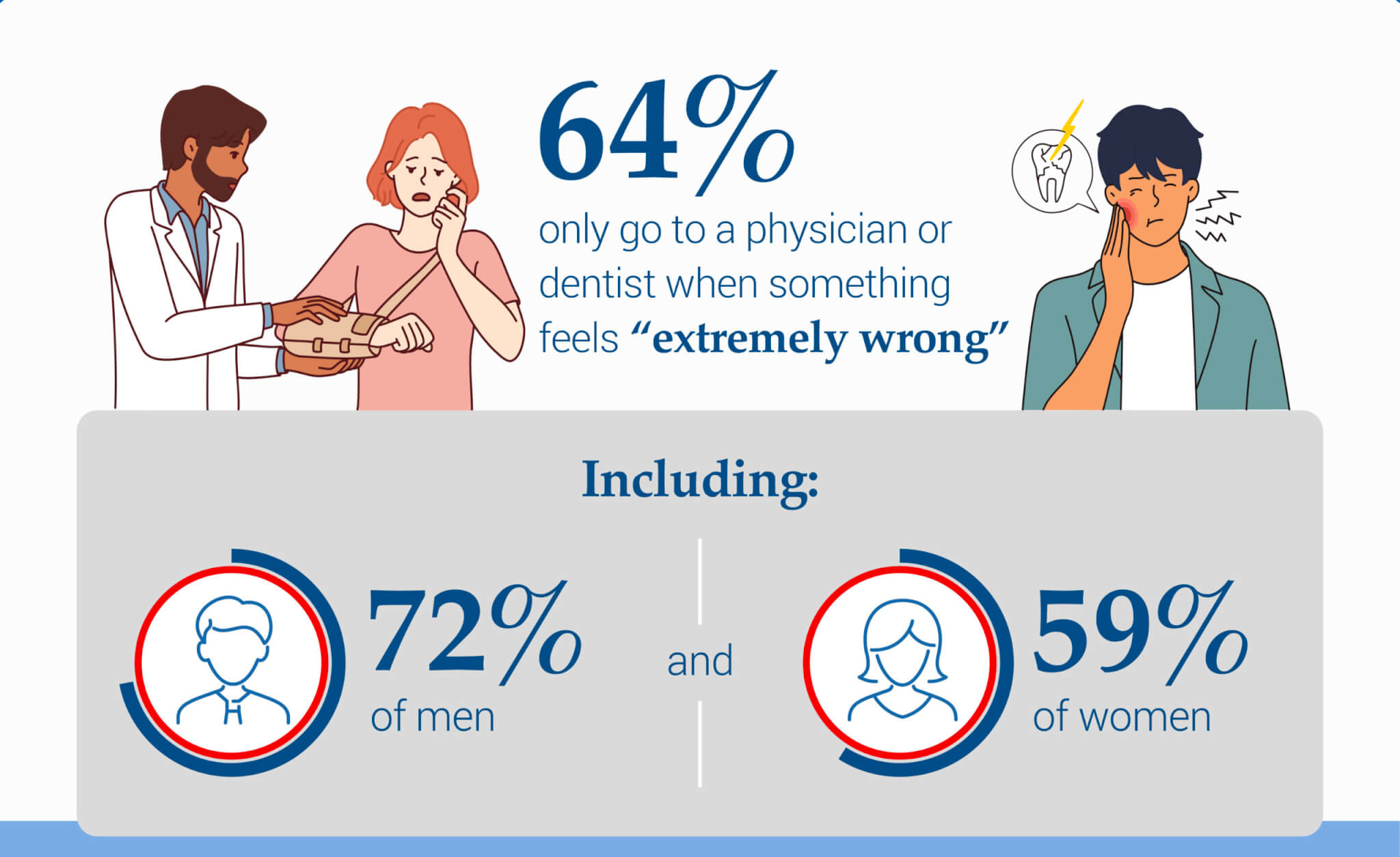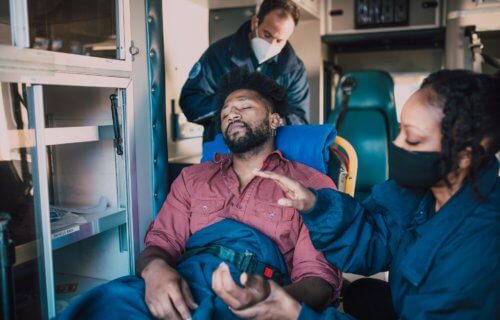NEW YORK — Nearly two-thirds of Americans only visit a doctor when they think there’s a severe problem with their health, a new survey reveals. The poll of 2,000 participants finds that 64 percent admit they address their health issues reactively rather than proactively.
Men are worse about this, with 79 percent waiting for severe symptoms to emerge before seeing a doctor, in contrast to 59 percent of women.
This research, conducted by OnePoll for the Henry Schein Cares Foundation, discovered that the average person had their last health checkup about two and a half years ago. Within the last five years, 65 percent have not been screened for high blood pressure, and 66 percent have not been screened for high cholesterol. For women, about three-quarters haven’t undergone a mammogram or pap smear during that period. Meanwhile, seven in 10 men haven’t had a prostate exam.
Among those with health insurance, just 48 percent have seen a doctor for a physical exam in the past year. On the dental front, only 44 percent of Americans have dental insurance, and on average, it’s been two years since their last dental checkup. Notably, just 39 percent visited a dentist within the last year, regardless of insurance — but this is higher than the 34 percent who had a doctor’s checkup.

While 78 percent of those surveyed felt at ease during doctor visits, the pandemic has heightened medical appointment anxiety for nearly a third (27%). Some participants expressed that their main concerns weren’t the medical consultations but rather the ancillary aspects like waiting (29%) and the inconvenience of scheduling and attending the appointment (21%).
When it comes to generational differences, Gen X and Baby Boomers appeared less bothered by medical visits. In contrast, Millennials and Gen Z were more concerned about aspects like physical examinations (22% and 27%, respectively), pain (21% and 24%), and overall apprehension (21% and 22%).
The survey also reveals a general trust in doctors, with two-thirds of respondents placing significant trust in medical advice. However, one notable finding was that 10 percent of Gen X participants never trust their doctor’s advice. Alarmingly, the most significant concern patients expressed was the perception that doctors didn’t genuinely care about their well-being (40%).
“A myriad of patients are neglecting or postponing their care due to a lack of understanding about preventive care’s importance or a personal connection gap with their medical provider,” says spokesperson Maureen Knott, President of the Henry Schein Cares Foundation, in a statement. “Patients are more inclined to prioritize routine preventive health care when they are well-informed and share a trusting, empathetic relationship with their health care providers.”
More than half of the respondents (53%) found accessing medical care challenging, with 35 percent expressing a desire for more education regarding the importance of screenings. Roughly 51 percent have a contingency fund for emergency medical needs, averaging slightly above $2,800.
“This study highlights the numerous obstacles preventing patients from accessing preventative care,” says spokesperson Allison Neale, Vice President of Public Policy for Henry Schein, Inc. “However, consistent access to integrated, preventive care is crucial for enhanced health outcomes, benefiting individuals, communities, and our society at large through improved health, increased productivity, and economic expansion. The saying ‘an ounce of prevention is worth a pound of cure’ proves to be more relevant than ever.”
Survey methodology:
This random double-opt-in survey of 2,000 general population Americans was commissioned by Henry Schein Cares Foundation between February 21 and March 2, 2023. It was conducted by market research company OnePoll, whose team members are members of the Market Research Society and have corporate membership to the American Association for Public Opinion Research (AAPOR) and the European Society for Opinion and Marketing Research (ESOMAR).

